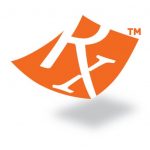By Fady Akladios
As promised in my last post, I will illustrate in this post an example of a plan for an IMG applicant attempting to obtain a residency spot in the US.
I will assume the applicant here is an IMG who is about to graduate medical school in his home country within the next 1 ½ – 2 years. I will also assume you are trying to match in 2016 (i.e. starting residency July 2016).
I will use the Gantt chart illustrated below to clarify the plan.
Once you have decided to pursue residency in the US, there are multiple things you have to work on simultaneously. All in all, from beginning to end, the journey takes about two years of preparation and hard work.
1) ECFMG: At the very beginning of the process, you will need to register with the ECFMG to write any of the USMLE exams or participate in the Match. This process can take few weeks to a few months depending on how quickly you can forward the necessary documents and fees to ECFMG.
2) USMLEs! These exams, dreaded by IMG’s, are a major challenge. They are also a very good way to adapt your skills and thinking process to the American way of practicing medicine. There are many resources out there that I do not need to discuss here. However, know that having a solid and realistic plan will greatly diminish the likelihood that you will waste any time in this stage of the journey. You need to score well on these exams. The Gantt chart represents a realistic estimate of when you need to start working on your USMLE’s in terms of preparation and how long you will have to wait for your results. It is advisable that you work on these exams early, so that you can get all your results before starting the ERAS/NRMP cycle starts.
3) US Experience: It is near impossible for IMG’s to get a residency spot in the US without solid clinical or medically-related working experience in the US. Begin searching for opportunities at least a year before starting your ERAS/NRMP application. Search for all available opportunities. Contact programs, submit your paperwork, and hope for the best. Apply to a variety of community-based and university programs. Most importantly, once you get a US elective, work to impress! You want to get two or more great LoR’s from your US experiences, preferably before the ERAS cycle starts.
4) Where to go: You should begin researching the programs you are interested in about two to three months before starting your ERAS application. Give yourself time to explore all the different programs and see if their mission statement aligns with your goals.
5) ERAS/NRMP: This is what it all comes down to. You have good USMLE scores, good university transcripts, and impressive LoR’s. Start working on your personal statement at least a month before your ERAS application. Have everything professionally reviewed if needed.
6) Interview Skills: Whether you think you have great interview skills or not, practice your answers to common interview questions with someone. Even better, use a professional service to master those skills and answers. Generally speaking, once you have gotten an interview, your performance there will be equally or more influential than your ERAS application in determining your ranking.
I hope to have presented a simplified representation of this complex journey here. As always, please leave me any questions below, and I will do my best to answer them.
